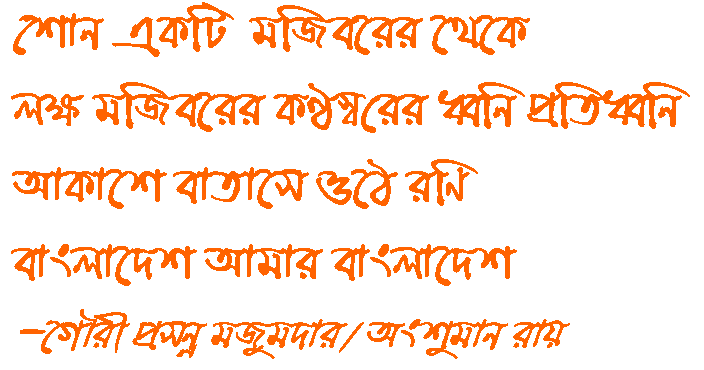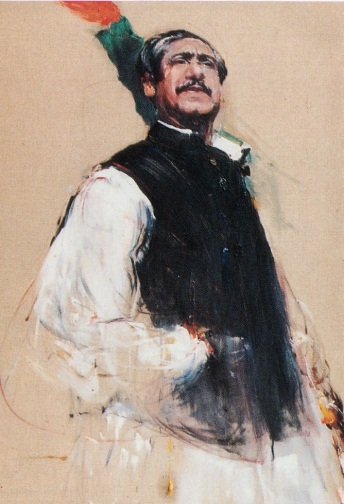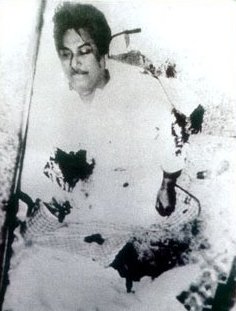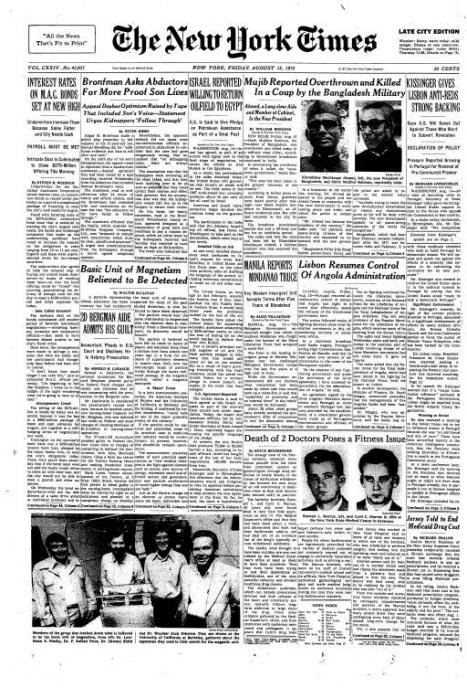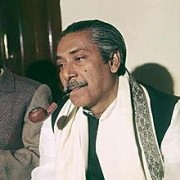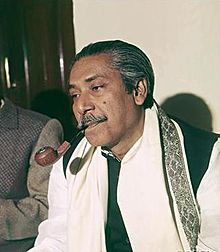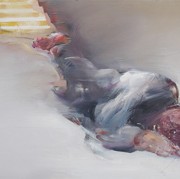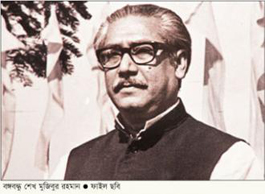The Day Made the Victory Complete
January 10, 1972. Day dawned in Dhaka. The great leader of the Bangladesh Sheikh Mujibur Rahman is coming back home. The ocean of people passed the night sleepless. They thronged to the Racecourse and Tejgaon Airport to have a better place to sand on and have a glimpse of their beloved great leader from a better angle. What a awaiting it was! The national dailies pen pictured their eagerness as quoted hereunder.
The Daily Ittefaq in its first lead wrote ‘The Great man is coming and all are thrilled in every direction, today is the day we have waited for long. The father of the Nation Bangabandhu Sheikh Mujibur Rahman is coming to the sweet lap of his motherland in the midst overwhelming love and confidence embedded in sacrifice after a prolonged span of nine months. The jail of the Pakistani military killers was not strong enough to keep him inside.
Every daily newspaper depicted emotion-choked stories and editorials. The Daly Ittefaq in its first page editorial went to say under the headline ‘Esho Banglar Swapnik Swagatam’ (come the dreamer of the Bengal, welcome) while the Dainik Bangla in its editorial said under the caption ‘Beere Sonitey Tomay Baran Kari’ (we receive you in the pool of blood shed by our heroes).
The Daily Sangbad: The whole city is awaiting the Bangabandhu, by this time Dhaka has become a city of celebration. With the arrival of the leader coming closer people of all walks of life– peasants, labourers, students and members of the women folk are getting more prepared. The Ittefaq in another story under the deadline “Aami Sarbagre grihini” (First of all I am a housewife): Begum Mjibru Rahman while talking to a group of journalists yesterday said, first of all I am a house wife, I am to shoulder the responsibility of running a big family”.
The Daily Azad presented the historical scenario— “Bangabandhu, when came down from the plane, was visibly very moved and overwhelmed. He could not believe apparently— yes, this is the land of my beloved motherland. In a very feeble sound he started saying—I am in Dhaka. I have come to my people again.
It took 130 minutes to reach the Racecourse from the Tejgaon Airport. The Dainik Bangla reports the people were on footpaths, traffic island, trees, balconies, wall lamp-posts, roof-tops and where not. Nobody viewed it hither-to, but how disciplined it was! Unbelievable! They were lost in emotion but firm in order.
Bangabandhu entered into the Race course amidst tumultuous welcome and slogans from the people thronged in lacks where a free Mujib on his free motherland expressed with utmost firmness – we have freed the country and we will remain free (The Daink Bangla).
The Daily Ittefaq reports: “The Bajrakantha (thunderous voice) of the Bangabandhu was emotion-choked. He said Bangladesh is free and there is no one in this planet to snatch the freedom from us – My dream has transformed into reality now. The Bangalees this time shall be cheerful. They will in joy and merry. There will be on dearth of bread. Otherwise, the freedom will be meaningless”.
The Sangbad reports: Bangabandhu with his unique ‘Bajrakantha’ expressed a note of caution—‘Be alert! Conspiracy is still going on.
Under ‘Janatar Sagarey jageche urmee’, Sangbad gave vivid description to the Race course public meeting- the diplomats only.
The Azad reports on the public meeting on the following day under the caption Bangabandhur Bajarakantha’ (The Thunderous voice of the Bangabandhu) — If there were no food and clothing the freedom will be futile. Yet, there is conspiracy against the freedom of my country.
The Azad in its front page editorial says— the freedom of the country is now complete as the great leader has come back to Bangladesh after being freed from the imprisonment,
The Daily Ittefaq reports on the re-union of the gamily, the emotion studded scenario is not only a single family, but it is common to every family of the country. On 11 January issue the Daily reports:
The day we passed yesterday was yet a day of wiping out the sorrows of poor mother, the mother Bengal. It was a day of the highest degree of our joy. It was not a day of celebration for a person of a class or a group; it was the joy of the whole country and the nation’.
At the end of his speech, the Bangabandhu conducted a prayer for the salvation and eternal peace of those who helplessly succumbed and embraced martyrdom in the hands of military junta and their local accomplices, the ‘Rajaakars’. Thereafter, the weary Bangabandhu returned home at Dhanmondi. But no feeling of exhaustion could confine him within the four walls of the residence. Well, this is the day, the country had witnessed on January 10, 1972.
Author : Kamrun Nahar


